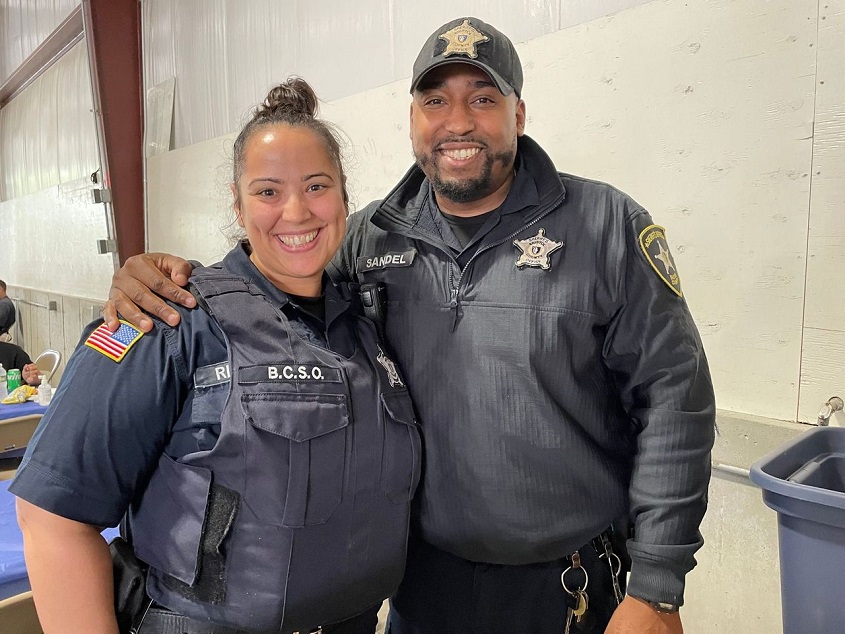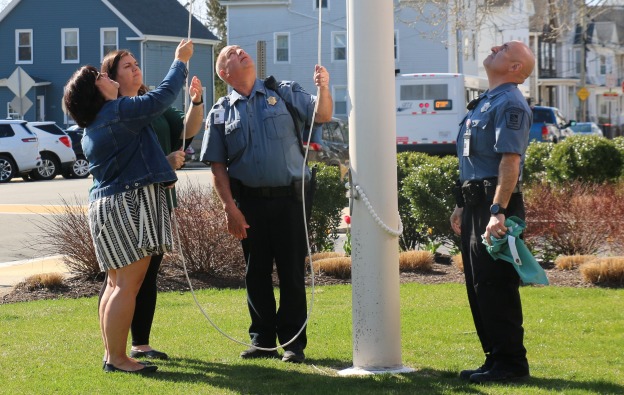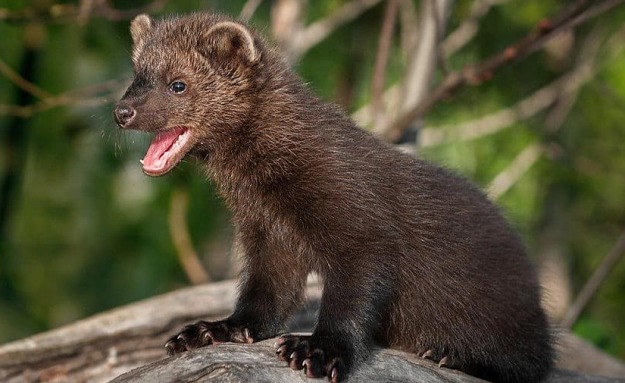The Massachusetts Department of Public Health (DPH) today announced that laboratory testing has confirmed four new cases of Eastern Equine Encephalitis (EEE) virus infection in horses from Holliston, Medfield, Brookfield and Granby, bringing the total number of horse cases of EEE to seven in Massachusetts this year. As a result, the risk level in Holliston, Medfield, Brookfield and Granby has been raised to critical and in Belchertown, Brimfield, Chicopee, East Brookfield, Ludlow, Medway, Millis, North Brookfield, Sherborn, South Hadley, Sturbridge, Walpole, and West Brookfield the risk level has been raised to high.
In total, there are 28 communities now at critical risk, 37 at high risk, and 126 at moderate risk for the EEE virus in Massachusetts. Many communities were raised to moderate risk based on current EEE activity and on patterns of historical risk. A map of the state’s current EEE risk levels can be found here.
There have been four confirmed human cases of EEE this year.
“As we head into the Labor Day weekend and the month of September people should not forget to bring and use an EPA-approved mosquito repellent for any outdoor activities,” said Public Health Commissioner Monica Bharel, MD, MPH. “The peak time for transmission of mosquito-borne illness extends through September here in Massachusetts.”
All residents throughout the Commonwealth should continue to use mosquito repellent and those in high and critical risk communities should consider staying indoors during the dusk to dawn hours to reduce exposure to mosquitoes.
“Horses and other mammals are an important part of mosquito-borne disease surveillance because they are exposed by the same kinds of mosquitoes that can expose people,” said State Epidemiologist Dr. Catherine Brown.
EEE is a rare but serious and potentially fatal disease that can affect people of all ages. EEE occurs sporadically in Massachusetts with the most recent outbreak years occurring from 2004-2006 and 2010-2012. There were 22 human cases of EEE infection during those two outbreak periods with 14 cases occurring among residents of Bristol and Plymouth counties.
EEE virus has been found in 366 mosquito samples this year, many of them from species of mosquitoes capable of spreading the virus to people.
The Massachusetts Department of Agricultural Resources has conducted aerial mosquito spraying in parts of Bristol, Plymouth, Middlesex, and Worcester counties to help reduce public health risk. However, spraying does not eliminate the risk of EEE transmission and the public is asked to continue to follow personal protection practices.
People have an important role to play in protecting themselves and their loved ones from illnesses caused by mosquitoes:
Avoid Mosquito Bites
Apply Insect Repellent when Outdoors. Use a repellent with an EPA-registered ingredient (DEET (N, N-diethyl-m-toluamide), permethrin, picaridin (KBR 3023), oil of lemon eucalyptus [p-methane 3, 8-diol (PMD)] or IR3535) according to the instructions on the product label. DEET products should not be used on infants under two months of age and should be used in concentrations of 30% or less on older children. Oil of lemon eucalyptus should not be used on children under three years of age.
Be Aware of Peak Mosquito Hours. The hours from dusk to dawn are peak biting times for many mosquitoes. Consider rescheduling outdoor activities that occur during evening or early morning in areas of high risk.
Clothing Can Help Reduce Mosquito Bites. Wearing long-sleeves, long pants and socks when outdoors will help keep mosquitoes away from your skin.
Mosquito-Proof Your Home
Drain Standing Water. Mosquitoes lay their eggs in standing water. Limit the number of places around your home for mosquitoes to breed by draining or discarding items that hold water. Check rain gutters and drains. Empty unused flowerpots and wading pools and change the water in birdbaths frequently.
Install or Repair Screens. Keep mosquitoes outside by having tightly-fitting screens on all of your windows and doors.
Protect Your Animals
Animal owners should reduce potential mosquito breeding sites on their property by eliminating standing water from containers such as buckets, tires, and wading pools – especially after heavy rains. Water troughs should be flushed out at least once a week during the summer months to reduce mosquitoes near paddock areas. Horse owners should keep horses in indoor stalls at night to reduce their risk of exposure to mosquitoes. Owners should also speak with their veterinarian about mosquito repellents approved for use in animals and vaccinations to prevent WNV and EEE. If an animal is suspected of having WNV or EEE, owners are required to report to DAR, Division of Animal Health by calling 617-626-1795 and to the Department of Public Health (DPH) by calling 617-983-6800.
For the most up-to-date information available on spraying locations, visit the Massachusetts Department of Agricultural Resources Aerial Spraying Map: https://massnrc.org/spray-map/
For other updates, Q&As, and downloadable fact sheets in multiple languages visit the DPH webpage www.mass.gov/guides/aerial-mosquito-control-summer-2019.
 New Bedford Guide Your Guide to New Bedford and South Coast, MA
New Bedford Guide Your Guide to New Bedford and South Coast, MA









